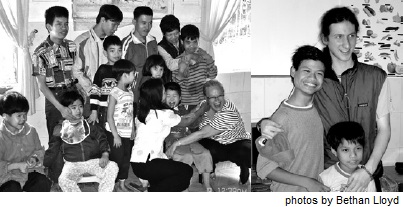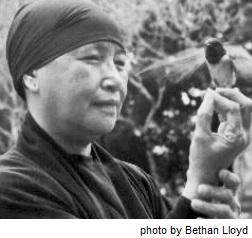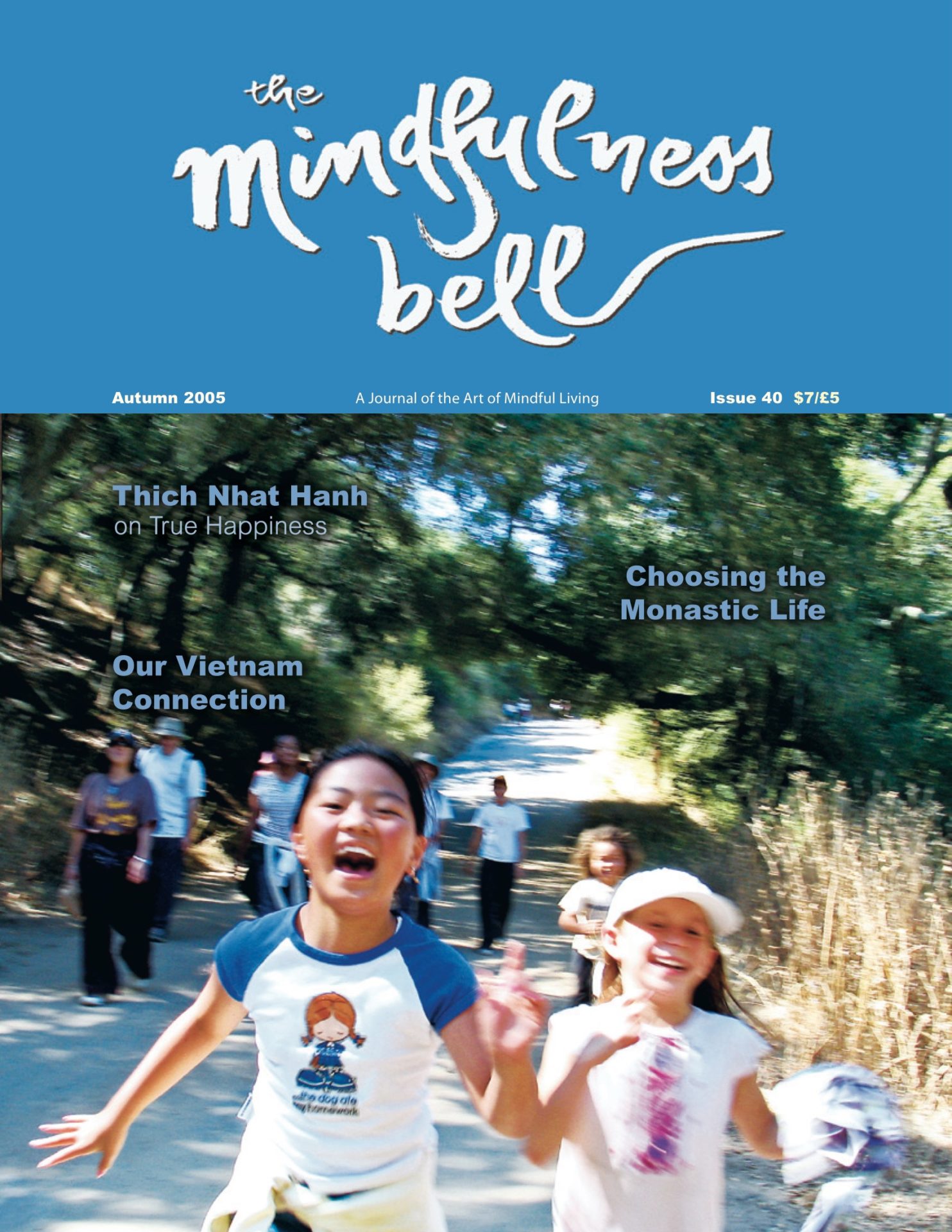By Jane Ellen Combelic in September 2005

On this rainy day, Sister Chan Khong has led the lay delegation into the shiny, sodden, impossibly green countryside around Hue. She is exposing us to the social service work of the Order of Interbeing sponsored by Plum Village—a life-giving well dug for a farmer, a vibrant preschool, a small temple and school built among the rice paddies. We end the day at an extraordinary place run by an extraordinary woman,
By Jane Ellen Combelic in September 2005

On this rainy day, Sister Chan Khong has led the lay delegation into the shiny, sodden, impossibly green countryside around Hue. She is exposing us to the social service work of the Order of Interbeing sponsored by Plum Village—a life-giving well dug for a farmer, a vibrant preschool, a small temple and school built among the rice paddies. We end the day at an extraordinary place run by an extraordinary woman, Sister Minh Tanh’s school for disabled children.

The Beloved School is unique in Vietnam, a place where children with moderate to severe handicaps, both mental and physical, receive education, food, and love. Some of them, who in the West would have been treated long ago, get medical care and surgery.
The school was founded in 2001 by Sr. Minh Tanh, Dr. Ha Vinh Tho and his wife Lisi of the Eurasia Association and Dr. Alan Sandler. It receives considerable support from the Dutch Sangha, among other sources of funding. On our visit we were fortunate to have with us Rochelle Griffin and Jantien Lodder, from Heerewaarden, Holland, both passionate sponsors of the school.
“In Vietnam there is no money for any kind of special care for medical procedures or for education for disabled people,” says Rochelle. “They feel left out of society, shame for their handicap, guilt for their bad luck and the extra trouble that it creates for their family; and because of their poverty, they experience a great deal of helplessness and hopelessness.” The school gives them a place to go during the day, transporting them by cyclo (bicycle taxi) if necessary. That way both parents can go to work.
As an American, I was shocked to learn that many of the children’s handicaps are due to Agent Orange, the defoliant dropped by the tons on this region of Vietnam during the war more than thirty years ago. Sadly, some 500,000 children have been born with birth defects attributed to the dioxin that contaminated the soil and water. For them, the war is not over.
Sister Minh Tanh, director of the school, radiates kindness and efficiency. She has devoted her life to improving the quality of life for handicapped children and poor families. (There are over 150 disabled children in the village.) Abbess of Long Tho Temple
in Thuy Bieu Village, she is also treasurer of Tu Hieu, our root temple in Hue, and coordinates all the funds collected through Plum Village and other organizations.
The school is financed entirely by donations. In addition to medical care for the children, this includes paying the teachers’ salaries and health insurance, purchasing food and supplies, and providing additional assistance to the poorest families.
Since 2001, when Rochelle and Jantien first traveled to Vietnam, they have been energetic fundraisers for the school. Rochelle, an American who has lived in Holland for many years, was disabled in a car accident in 1980 and suffers from chronic pain. She often used a wheelchair during the trip, powered by the tireless Jantien. Rochelle directs the Vuurvlinder Foundation, a center for people confronted with serious illness and other kinds of loss and change who are looking for inspiration and quality of life.
The Beloved School is close to Rochelle’s heart. “Becoming involved in this project,” she says, “is helping me to heal many wounds, some stemming from the American-Vietnam war that I was so angry about in the 1960s. It’s also been a means of honoring my mother who was a pioneer in the field of special education; she integrated disabled children in a vocational program into the public school system in the 1980s. And it allows me to help other disabled people.”
During our visit a dozen children sang a song for us. Some of them were shy and withdrawn, some bursting with enthusiasm. All of them touched our hearts.


